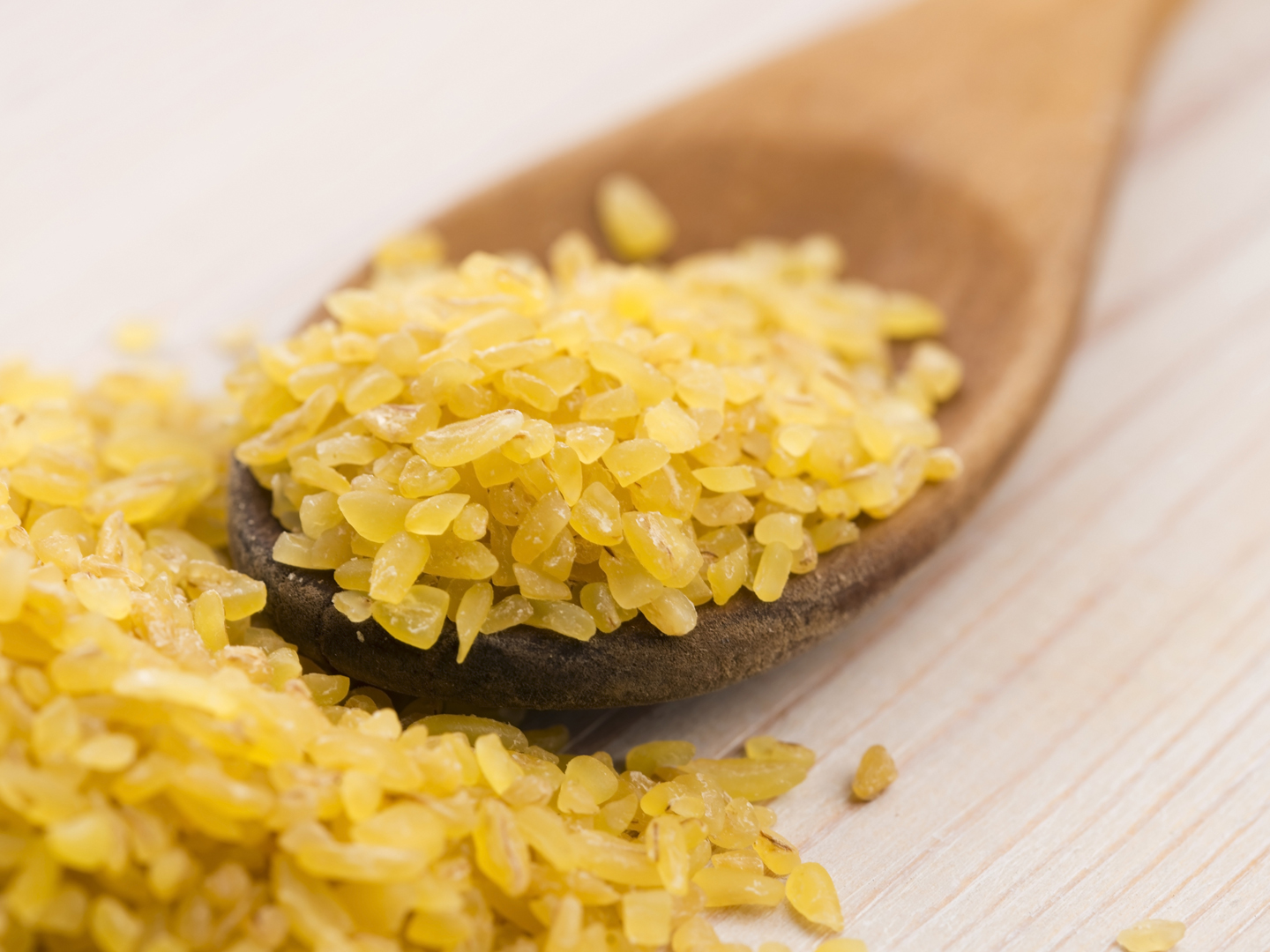
bulgur vs rice
Bulgur vs White rice: What's The Difference? This article explains the key similarities and differences between bulgur and white rice, foods from the grains food group. Read on to learn more about the bulgur vs white rice comparison. Written by Dennis Gillett, Health & Fitness Writer. Updated on February 3, 2023.

bulgur vs rice
Updated on January 27, 2023. Brown rice and bulgur belong to the grains food group, one of the staple food groups for people on a plant-based diet.
:max_bytes(150000):strip_icc()/bulgur_annotated2-8eff133721b14e7f9b6dd41fb4ea0e78.jpg)
Benefits Of Bulgur Wheat For Weight Loss Blog Dandk
Nutrition Evidence Based Which Grains Are Low in Carbs? 9 Good Choices High fiber grains, including quinoa and oats, can reduce the number of carbohydrates your body absorbs. They can also provide.
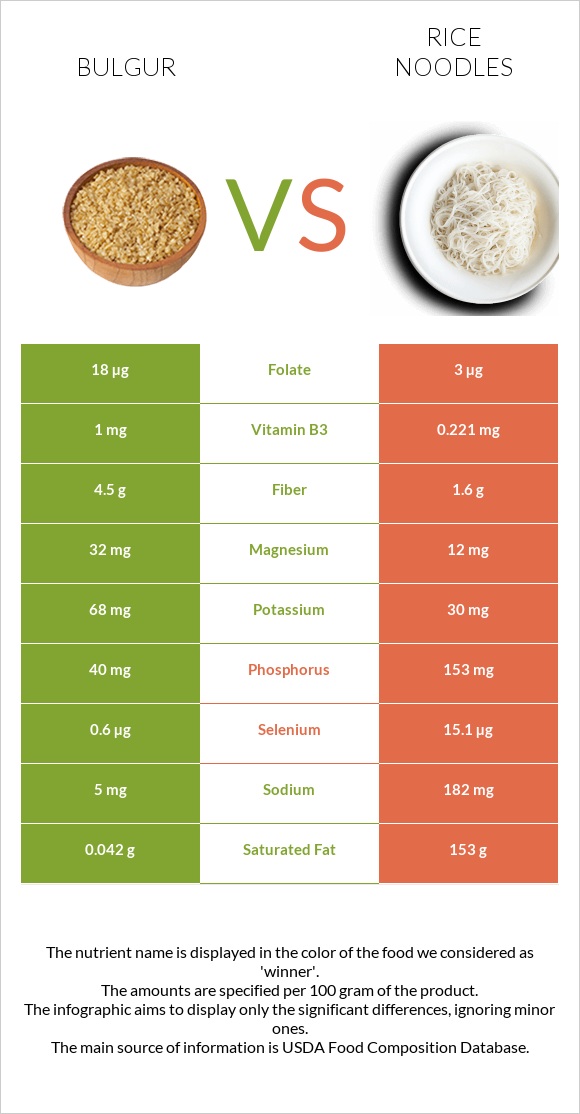
Bulgur vs. Rice noodles — InDepth Nutrition Comparison
published March 16, 2021 Bulgur wheat is a healthy and hearty whole grain, similar in texture to couscous and quinoa. Easy to prepare and low in calories, bulgur wheat is a popular staple in both Mediterranean diets and Middle Eastern dishes like Tabbouleh.

Bulgur Wheat vs Quinoa Which Grain Reigns Supreme in Nutrition
How to cook Recipe ideas Benefits Precautions Bottom line Bulgur wheat is a nutrient-dense whole grain that pairs well with many foods. Adding it to your diet may help to improve blood sugar.

Bulgur vs Brown Rice (Home Cooking 101 DiTuro Productions) YouTube
Rinse 1 cup of bulgur and drain well. Cook the coarse bulgur wheat. Bring 1 ½ cups of low-sodium broth (or water) to a boil in a medium saucepan. Stir in the drained coarse grind bulgur and 1 tablespoon olive oil (optional). Season with a big pinch of kosher salt. Once the liquid bubbles again, lower the heat.

bulgur vs rice
Calories: 76. Fiber: 4 grams. Protein: 3 grams. Sodium: 5 milligrams. Fat: 0 grams. Cholesterol: 0 grams. Carbohydrates: 17 grams. Sugar: 0 grams. You will feel fuller having eaten less calories.

What is the Difference Between Bulgur Wheat and Quinoa
Bring water to a boil and add bulgur, then cook for 15 to 20 minutes, until tender. Drain excess liquid. How to cook bulgur by soaking: Combine 1 part bulgur and 2 parts boiling water. Stir and let sit for an hour. Drain excess liquid.
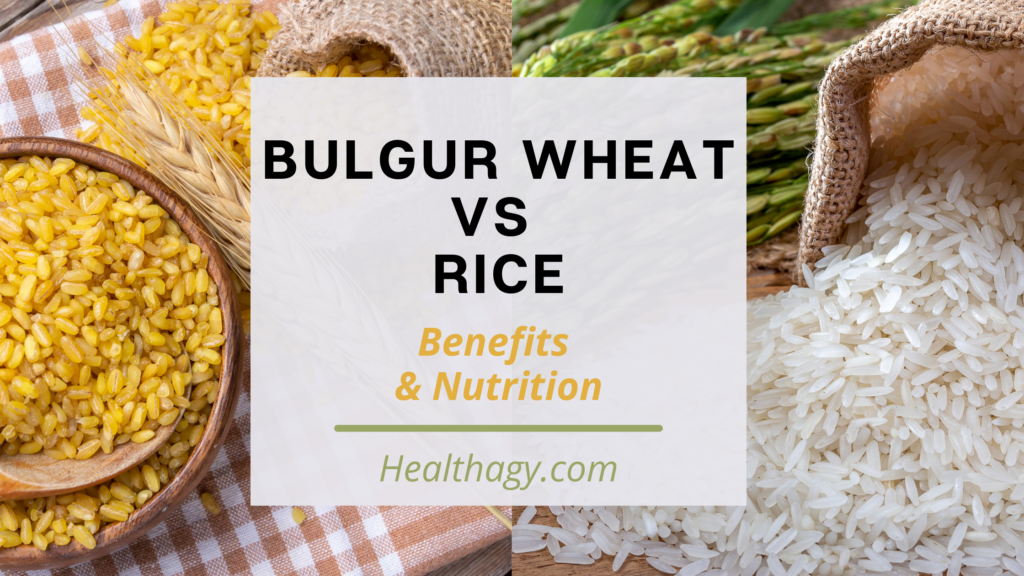
Bulgur Wheat vs Rice Benefits & Nutrition Healthagy
vs. Rice — In-Depth Nutrition Comparison. Compare to Rice by vitamins and minerals using the only readable nutrition comparison tool.
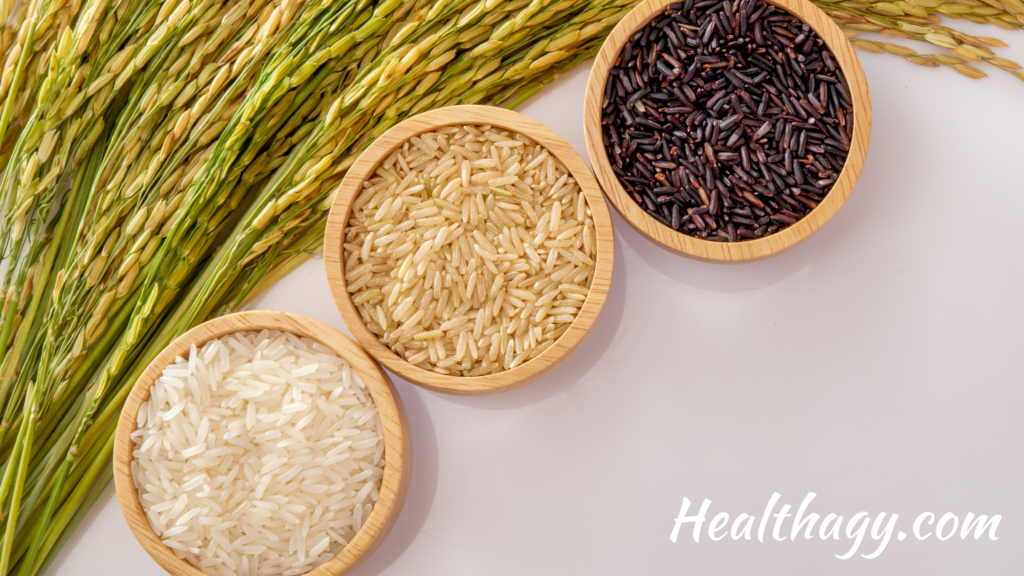
Bulgur Wheat vs Rice Benefits & Nutrition Healthagy
Bulgur vs Brown Rice Bulgur's Nutritional Edge over Brown Rice Cooking Light magazine published a comparison between bulgur and brown rice, showing that a cup of bulgur has fewer calories and less fat. In terms of nutrition, bulgur holds its own when compared to fiber-rich brown rice - with more than twice the fiber and four times as much folate!
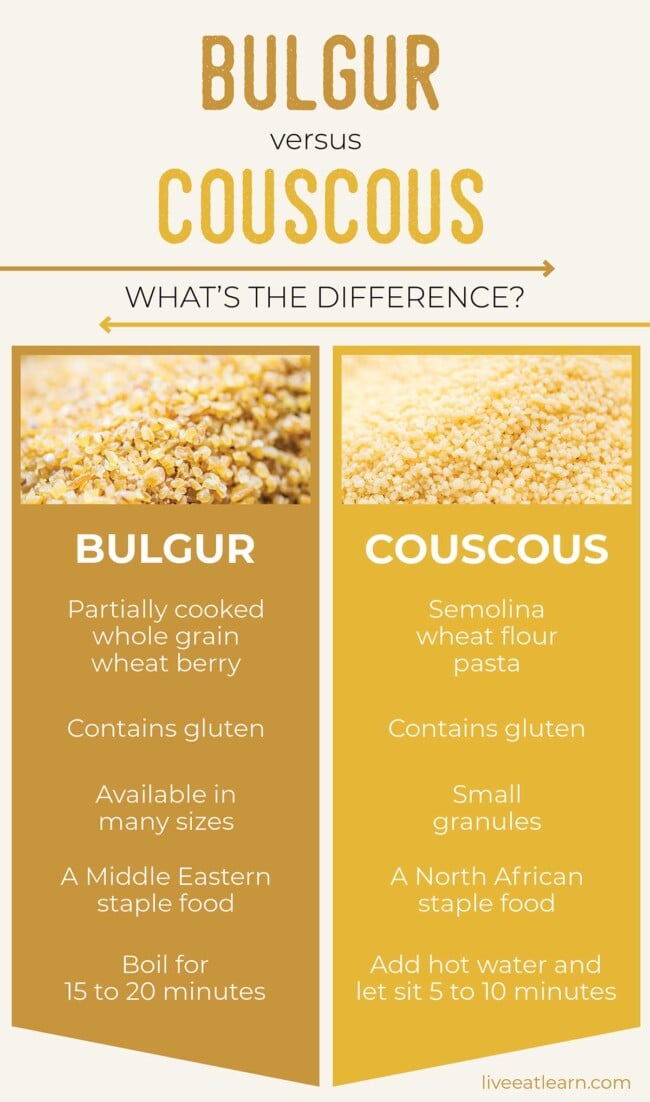
Bulgur vs Couscous Which is Best? Live Eat Learn
Significant differences between Brown rice and Bulgur Brown rice has more Manganese, Vitamin B1, Vitamin B3, Selenium, and Phosphorus, however, Bulgur is richer in Fiber. Brown rice covers your daily Manganese needs 16% more than Bulgur. Bulgur has 10 times less Selenium than Brown rice. Brown rice has 5.8µg of Selenium, while Bulgur has 0.6µg.

bulgur vs rice
The main difference between bulgur wheat and rice is that bulgur wheat has significantly more calories at 364 calories per 100 grams, and brown rice has 112 calories. Bulgur wheat provides 11.4 grams of protein per 100 grams and is a complete protein source. Brown rice contains 2.3 grams of protein and is an incomplete source of protein.

bulgur vs rice
Calories: 151 Fat: 0.4g Sodium: 9mg Carbohydrates: 33.8g Fiber: 8.2g Sugars: 0.2g Protein: 5.6g Manganese: 1.11mg Phosphorus: 72.8mg Carbs One cup of cooked bulgur provides 33.8 grams of carbohydrate. The glycemic index of cooked bulgur is 46, which is considered low.

Bulgur Pilavi (Turkish Bulgur Rice Pilaf) Cooking
July 1, 2019 19 0 32 What Is Bulgur Wheat? Bulgur Wheat vs. Quinoa Nutrition Facts Health Benefits Risks, Side Effects and Interactions How to Cook and Store It Recipes As a staple of Indian, Turkish and Middle Eastern cuisines for centuries, bulgur wheat tends to be most well-known around the world as the main ingredient used in tabbouleh.
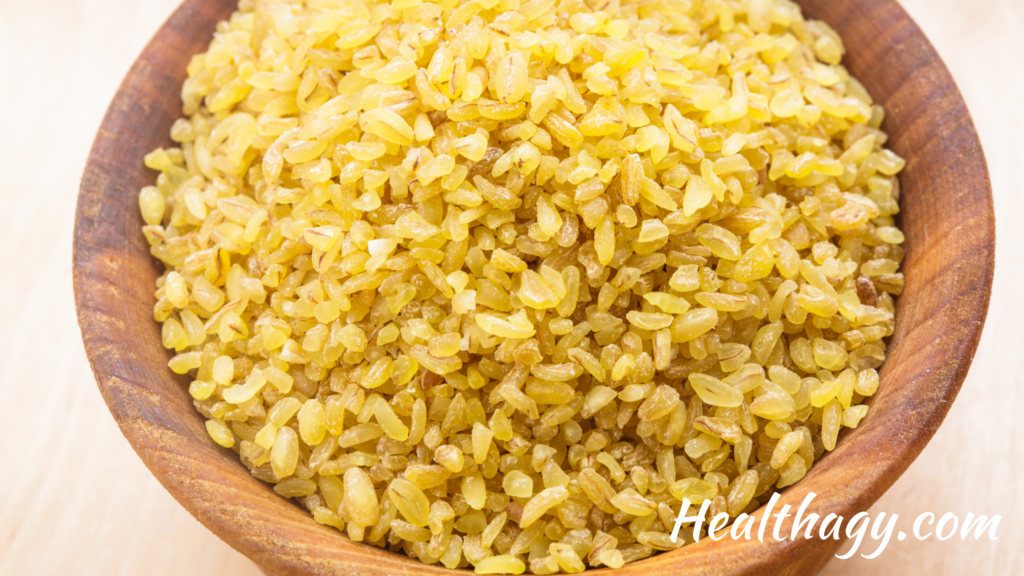
Bulgur Wheat vs Rice Benefits & Nutrition Healthagy
Summary Bulgur is significantly higher in dietary fiber compared to rice. Bulgur is also higher in protein and nearly 10 grams lower in carbs. Bulgur is undoubtedly the winner in vitamin content, being richer in most vitamins, particularly vitamin B1 and folate.

Bulgur vs Rice Health impact and Nutrition Comparison
While bulgur and rice are both grains, bulgur comes from wheat and has a higher nutritional value than rice. In contrast, rice comes from a paddy. Additionally, most rice is grown in India, China, and Southeast Asian countries. Meanwhile, Bulgur is cultivated mainly in Turkey, the Mediterranean, and the Middle East.